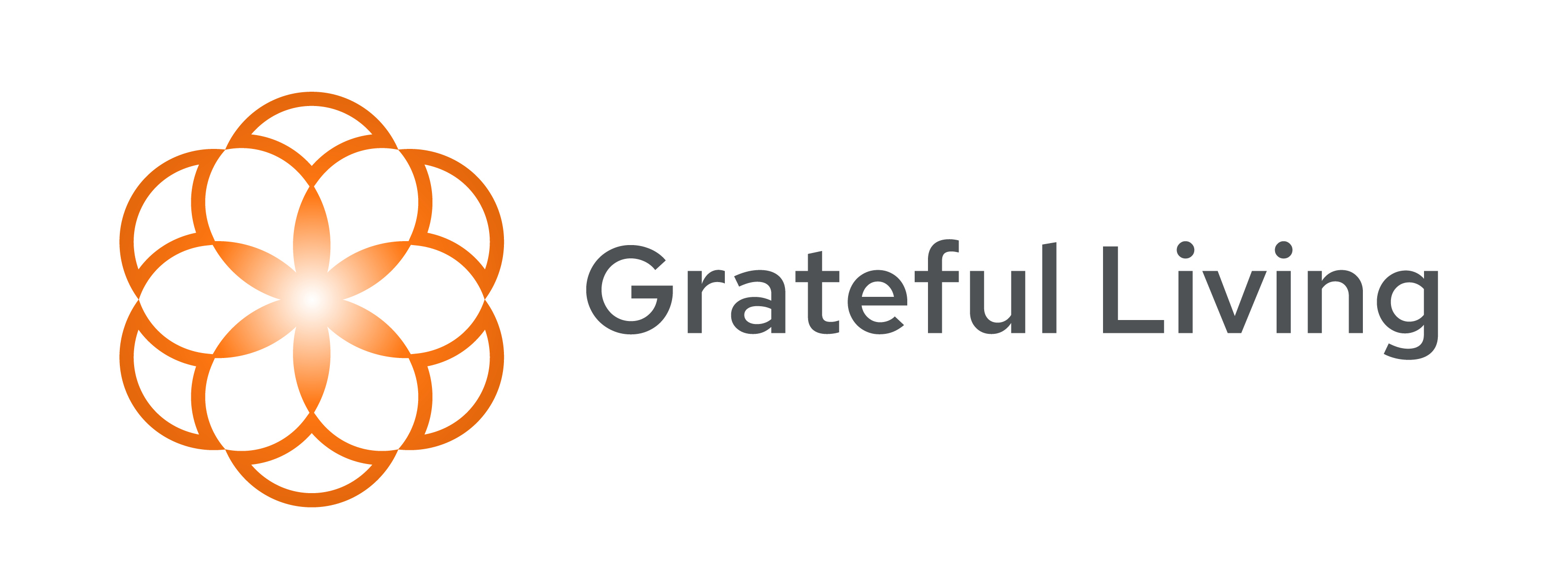This life is almost confoundingly beautiful and good.
Earlier this summer, more than a few of my friends commented on how idyllic my life looks these days, referring, no doubt, to photos of rustic cabins and lakeside retreats in places like Montana and the Berkshires, where I sometimes offer poetry workshops and retreats.
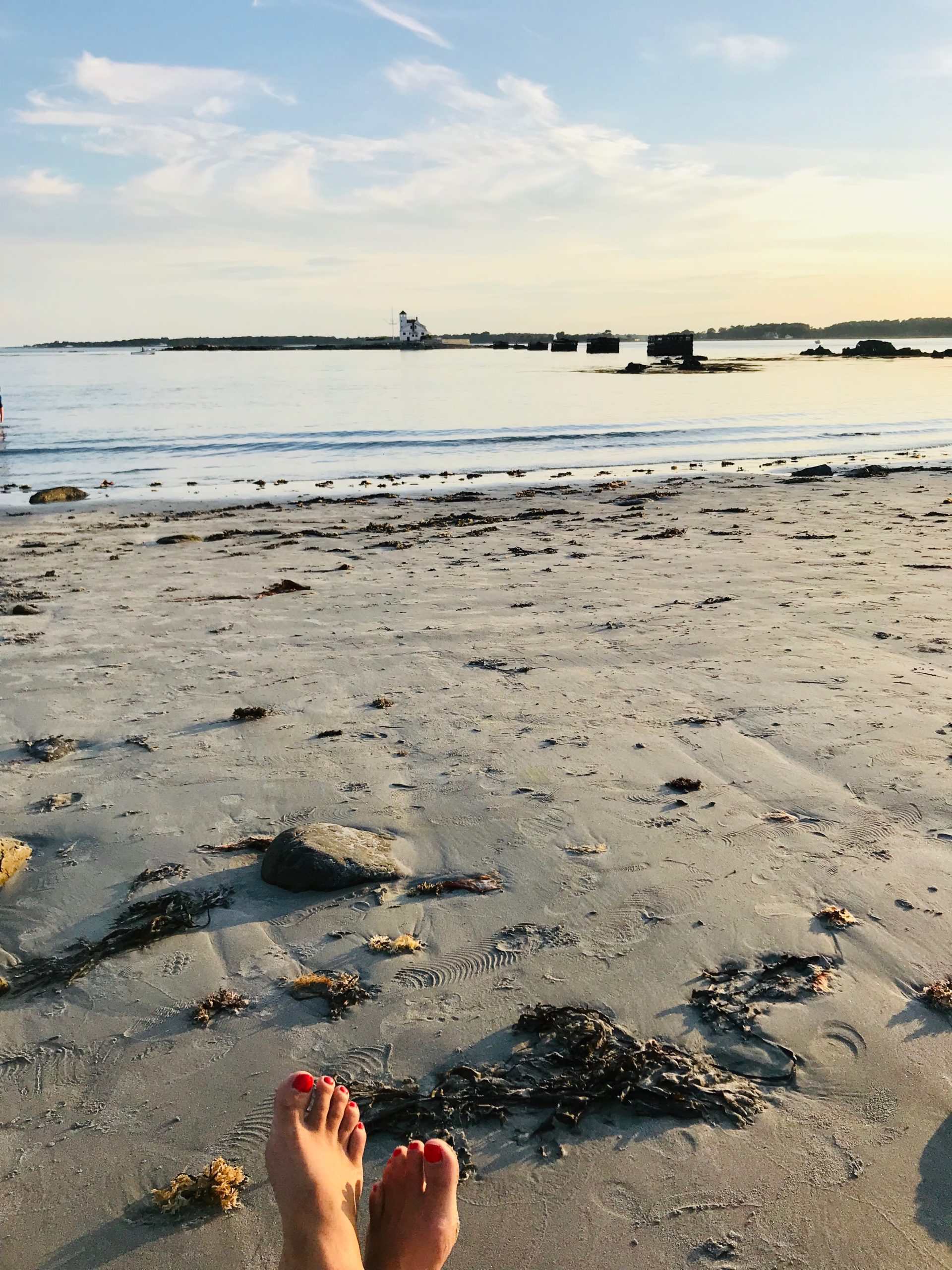
This life is almost confoundingly beautiful and good. The fact that I spend most of my waking hours in service of people and challenges that matter to me, continues to blow my mind, precisely because I know it could be otherwise. To gather with other writers and artists in the company of lakes, rivers, mountains, and forests makes me feel like I am fulfilling my purpose, which is no small accomplishment, given how long I asked the question: How should I live? What should I do, given what I know and who I am? The scenic vistas are the visible part, where I arrive after months or years of invisible effort to plan, negotiate, and market these special events. The invisible part, I hate to admit, is hunching over a laptop, where I attempt to stay on top of the prosaic aspects of this poet’s life, which too often comes down to email, email, email, as well as budget airlines and my twenty year old Honda, lately without heat or air conditioning.
In early June an image came to me — a model for how to relate to my upcoming schedule of summer travel and teaching — of a leaf floating down river over rocks, rapids, eddies, and stretches of cool blue, without becoming caught in the weeds or whirlpools along the edge and without being sunk.
More than any other current ambition, I am trying to find ways to enjoy what I’m doing in this moment, no matter what else may need my attention. I aspire to this quality of presence in both the mundane and marvelous parts of my life, so when I’m discussing a poem by Jenny George or Sarah Gambito, I want so much to do just that, without parallel thoughts drawing me into other concerns. And when I’m sitting with my sweetheart in the yard at night, drinking rum by oil lamp light, I don’t want to feel that I should return to my study. In any case, I am learning to put the phone and computer away after the work day ends.
And, I’ve been experimenting with what I can get away in terms of these ideas and boundaries, which is to say, I am training my brain that it’s OK to stay put, redirect my energy, and have a little faith that — despite a shift in our culture toward non-stop productivity — it’s part of my purpose in life to resist that pressure and find my own pace and logic for doing whatever must be done in a day.
Can I begin my days with poetry rather than the news? Yes, it turns out that I can.
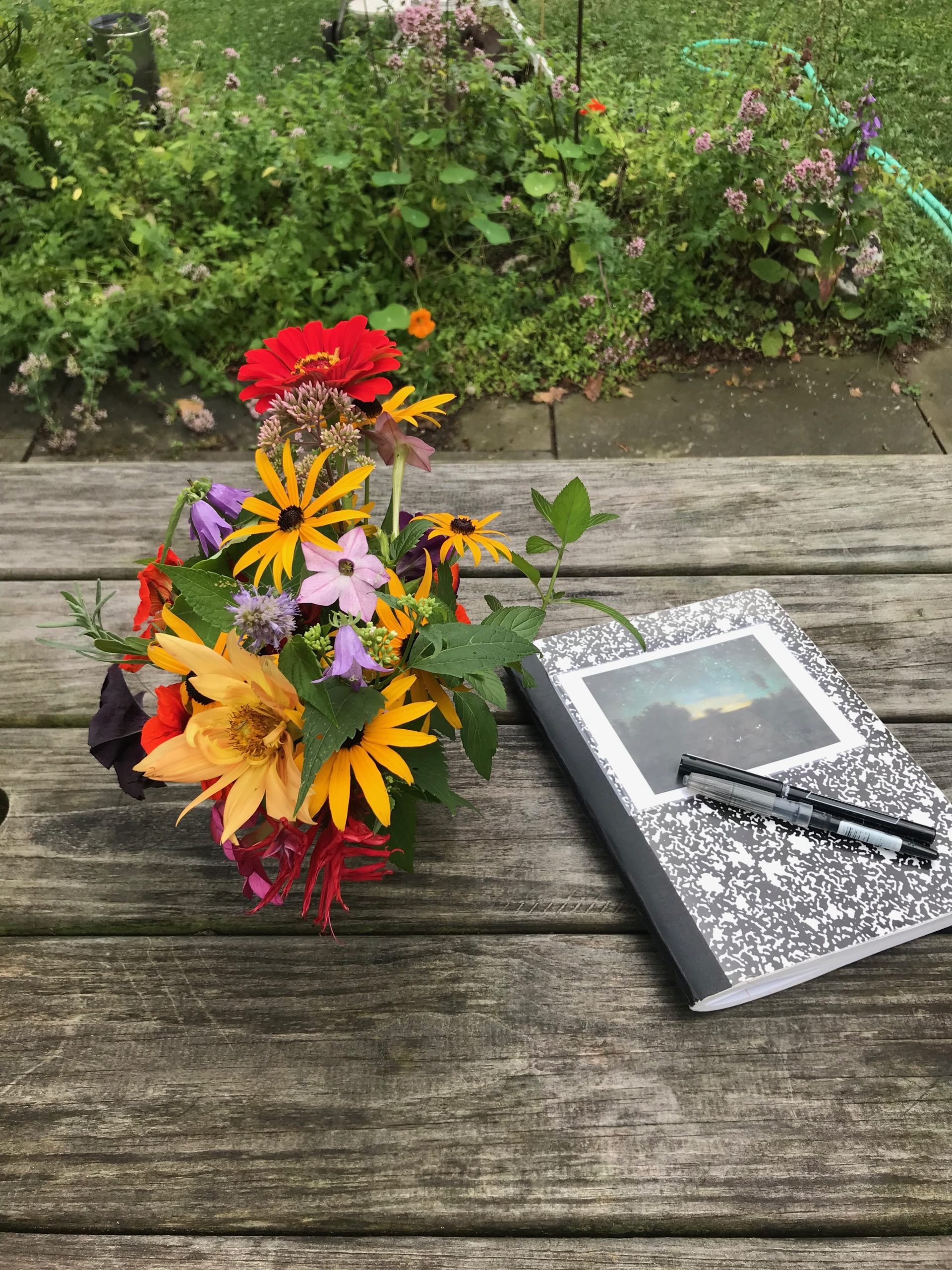
Can I begin my days with poetry rather than the news? Yes, it turns out that I can. For over a decade I’ve maintained a commitment to both a contemplative life and my artistic practice, by using the prime hours of the morning for what matters most, which has the secondary benefit of softening me toward the more prosaic duties that will soon follow. Can I take a real weekend and save emails until Monday and still run my business successfully? Can I leave my computer at home when I travel? Can I turn my phone off while I’m eating dinner with friends? What if I did what feels right and healthy for me and my family, even if I see few examples of others living this way?
I have no wish to sabotage the life I’ve created, in which I rely on these technological tools to do my work, and survive economically. But I’m also more than a little nostalgic for the days—were they really twenty years ago?— when it was more or less possible to do one thing at a time and not feel tugged by devices and habits whose primary purpose is to remind me of other things I may need, and sometimes want to be doing, elsewhere, but not here.
…I’m dedicated to creating spaces and experiences where I and my students can sink into a different sense of time…
Maybe I’m just sentimental, but those days provide evidence that life can function, even without the kind of responsiveness that we’ve come to expect from our communications and business. With this in mind, I’m dedicated to creating spaces and experiences where I and my students can sink into a different sense of time, both as a form of resistance and a means to restoring our inborn sense of how to order our days and priorities. Capitalism’s rhythms may infuse every facet of contemporary life but I refuse to accept this without consistent push-back, given all that is at stake for myself, my family, not to mention society and our planet. Just as many employers approach their workers as resources to exploit, it’s possible for a self-employed person like me, to do the same thing, without considering how else I might live and work.
Living with this tension between being and doing did not arise with the internet era but it does challenge me every day to choose what matters, and where to direct my attention, and to ask how else I can run my business.
There’s a poem by Alan Dugan, “On Looking for Models,” which has mentored me along this path and it ends with these lines: “The trees in time / have something else to do / beside their treeing. What is it.” In considering this question over the course of many years, I’ve learned that I need long periods of single-pointed focus, mental spaces free of intrusive thoughts about the workaday aspects of my existence. And I’ve also long since determined that I am more than a worker or a householder or public person: I am an artist and spiritual being that requires sustenance of a sort that is entirely independent of economic activity. I also need to go to forests and open spaces, not only for consolation, but because trees and leaves and rivers show me alternative ways of being in the world, as I am.
Like that beech leaf, I travel down river, weaving and winding and often getting wet, but I don’t drown, even I sense that risk, when work piles up.
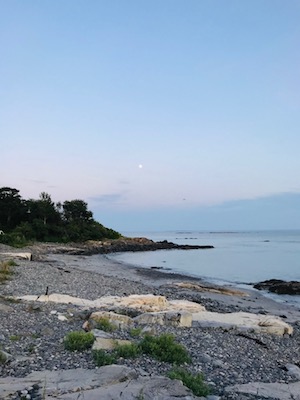
Through experimentation, I’ve learned that I can allow a certain amount of what happens to simply happen, without worry or undue effort, and I can also have some faith that emails will wait while I do my real work, as will the other things that accumulate when I am away, teaching or getting a break. Like that beech leaf, I travel down river, weaving and winding and often getting wet, but I don’t drown, even I sense that risk, when work piles up. Returning to the image of the leaf, I remain true to my commitment to find another way of working and living in this fast paced, modern world.
What I now know, with confidence, is that my real work involves being as present as possible—to my own mind, to those I teach and mentor, and to the actual world that sustains all of us spiritually as well as materially. Sometimes the best way to stop doing something harmful or unwanted is to replace the action with an alternative. Here’s what my mental to-do list looks like these days:
Do one thing at a time and do it with presence, even pleasure.
Listen. Tune in and really listen to myself and the world around me.
Feel the particular air; the temperature of the sand; the cold, cold water. Smell it too. It smells like salt and sea roses and wind.
Look around. Where am I? Allow each detail to come into focus: rhubarb gone to seed, two hummingbirds in the withering bee balm, the overgrown lawn.
See and really be with those I meet.
Notice what is good, what feels right, and where I’m aligned rather than working against my own needs and nature.
In the last two years, my anxiety dreams have tapered off, if not disappeared, I’m sleeping better, and I no longer get tension headaches like I used to. I still get neck and shoulder pain from all the time I spend at a desk, but I am dedicated to retraining myself to not rush, and not worry, and to learn how to be in a body that really does travel downstream, without being sunk by my own behaviors. With each of these small actions, I’d like to think I am also pushing back against the ways that some habits and conventions can distance us from one another, and our planet, and don’t we need to move toward one another right now? Don’t we all need to enjoy more of what it means to be alive, and worry less that our real life is happening somewhere else?
Practice Suggestion:
Make your own to-do list. What’s most important, first thing each day? How can you build greater awareness into the choices you make about how you will approach your day? It might help to write a series of statements that begin with verbs (ie. Look, Feel, Listen, Do.)
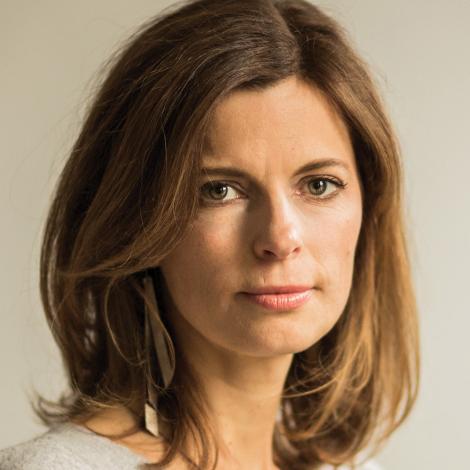
Holly Wren Spaulding is an author, teacher, and founder of Poetry Forge, where she empowers writers to explore the fullness of their humanity through the practice of poetry. She collaborates with artists, and works across disciplines, to explore how language and the poetic imagination can transform our experience and our place in the world. This fall, find her at Kripalu Center for Yoga and Health, hosting “Poetry as Integrative Medicine,” as part of the Narrative Healing program there. poetryforge.us
